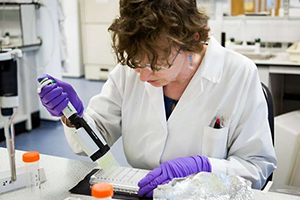
Authors: Laura Anderson, Royal College of Surgeons in Ireland
Source: Medical Xpress
New research by RCSI University of Medicine and Health Sciences published in the Blood Journal has revealed that the age at which individuals are tested for von Willebrand disease (VWD), a common bleeding disorder, significantly affects their diagnosis. This could be key in addressing current challenges in misdiagnosis and treatment of patients, potentially reducing the risk of bleeding complications during surgery and childbirth.
VWD is the most common inherited bleeding disorder that prevents blood from clotting properly. It affects approximately 1% of people worldwide and is caused by reduced levels of a protein that helps with clotting called von Willebrand factor. This makes patients bleed more easily, causing issues like heavy periods, frequent nosebleeds, and bleeding after surgery or childbirth, impacting their quality of life.
Upon diagnosis, patients with VWD are assigned to one of several subtypes that guide their clinical treatment. Correct diagnosis is crucial for effective treatment, especially for individuals with borderline von Willebrand factor levels.
Led by Dr. Ferdows Atiq and Professor James O'Donnell at RCSI School of Pharmacy and Biomolecular Sciences, this research analysed data from two national studies from Ireland and the Netherlands and highlighted how the timing of diagnostic testing can significantly influence the assigned subtype of VWD.
Importantly, the analysis of over 500 patients showed that people with borderline von Willebrand factor levels, i.e., moderately low levels of the factor, don't form a separate clinical group, contrary to previous assumptions. The diagnostic tests capture a single moment on an age dependant gradient. This supports the idea that people tested at an older age are more likely to be misdiagnosed with a milder subtype of the disorder.
"This study has revealed that age plays a critical role in diagnosing VWD, potentially leading to inaccuracies in both diagnosis and treatment," said Professor James O'Donnell, Director of the Irish Centre for Vascular Biology at RCSI.
"The findings should encourage a review of our approach to testing for VWD to ensure that age-specific factors are integrated to improve the quality of life for patients and minimise risk."
The research also showed that as people with VWD get older, they respond better to a particular type of treatment. This indicates that older patients may require less medication, reducing the chances of experiencing side effects. This finding could open new possibilities for treating older patients with VWD.
More information
This article was from Medical Xpress and was legally licensed through the DiveMarketplace by Industry Dive. Please direct all licensing questions to [email protected].

Disclaimer: Novartis Ireland Limited accepts no responsibility for the content, accuracy, interpretation or out of use of the information contained within this article or its use of linked websites.


